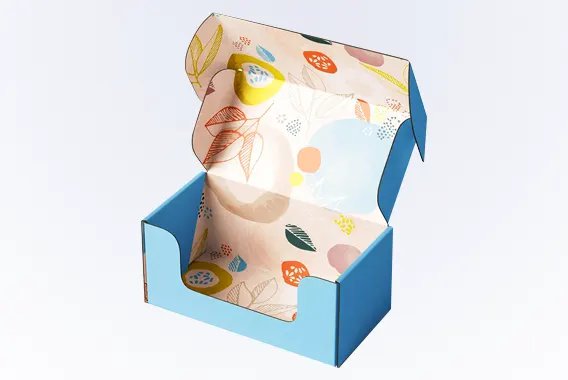The retail industry has experienced a significant shift in recent years, driven by growing consumer awareness and concern about environmental issues. As sustainability becomes a top priority for consumers, brands and retailers are reevaluating their practices and embracing eco-friendly solutions, including sustainable packaging. This article delves into the latest trends in sustainable packaging within the retail industry, with a particular focus on retail boxes. We will explore the importance of sustainable packaging, the latest innovations in eco-friendly materials and design, consumer expectations, and the positive impact of these trends on the environment and businesses.
The Urgency of Sustainable Packaging
As the global population grows and consumption increases, the environmental impact of packaging has become a pressing concern. Traditional retail packaging, often composed of single-use plastics and non-recyclable materials, contributes to pollution, waste, and climate change. In response to these challenges, sustainable packaging has emerged as a responsible and necessary solution. Sustainable retail boxes are designed with materials that have a lower environmental footprint, such as recycled cardboard, biodegradable plastics, and FSC-certified paper.
Latest Trends in Sustainable Retail Boxes
- Eco-Friendly Materials: Retailers are increasingly adopting eco-friendly materials for their packaging needs. Recycled cardboard is a popular choice due to its versatility, strength, and eco-conscious nature. Biodegradable plastics, derived from renewable resources, are being explored as alternatives to conventional plastics. Brands are also turning to FSC-certified paper, ensuring that the raw materials come from responsibly managed forests.
- Minimalist Design: The minimalist approach is gaining traction in retail box design. Brands are recognizing that less is more when it comes to packaging. By streamlining designs and eliminating unnecessary layers, retailers reduce waste and use fewer resources.
- Customization for Sustainability: Custom retail boxes offer an excellent opportunity for brands to showcase their commitment to sustainability. Brands can incorporate eco-friendly messaging, logos, and eco-labels on their packaging to communicate their environmental efforts effectively.
- Consumer Education: Brands are taking the initiative to educate consumers about the importance of sustainable packaging. Packaging now includes information on how to recycle or dispose of materials responsibly, empowering consumers to participate in sustainable practices.
- Circular Economy: The concept of a circular economy, where materials are reused and recycled, is influencing retail box trends. Brands are incorporating recycled content in their packaging and encouraging customers to recycle their retail boxes after use, contributing to a more closed-loop system.
Benefits of Sustainable Retail Boxes
- Environmental Impact: The adoption of sustainable retail boxes reduces the strain on natural resources and minimizes waste. By choosing eco-friendly materials, brands can significantly decrease their carbon footprint and contribute to a healthier planet.
- Brand Image and Loyalty: Consumers today seek out environmentally responsible brands. By adopting sustainable retail boxes, brands can enhance their image, build trust, and foster long-term customer loyalty among eco-conscious consumers.
- Regulatory Compliance: As environmental regulations become stricter, sustainable packaging practices ensure that brands stay compliant with legal requirements, avoiding potential penalties and reputational damage.
- Cost Efficiency: Although the initial investment in sustainable packaging may seem higher, it can lead to long-term cost savings. Reduced material usage and transportation costs contribute to a more efficient supply chain.
- Innovation and Differentiation: Embracing sustainable retail boxes offers an opportunity for brands to stand out in a crowded market. Innovative and eco-friendly packaging designs can create a unique and memorable unboxing experience for consumers.
Consumer Perception and Sustainable Retail Boxes
Consumer perception plays a crucial role in the success of sustainable retail boxes. Research shows that a large percentage of consumers prefer products with eco-friendly packaging. Brands that adopt sustainable packaging solutions demonstrate their commitment to responsible practices, resonating with environmentally conscious consumers and positively impacting brand perception.
The Unboxing Experience
The unboxing experience has become an essential aspect of the consumer journey. Sustainable retail boxes, with their minimalist design and eco-friendly materials, offer an opportunity for brands to create a memorable and delightful unboxing experience. Brands can incorporate personalized touches, such as thank-you notes or branded tissue paper, to enhance the emotional connection with the customer.
E-Commerce and Sustainable Retail Boxes
The rise of e-commerce has presented unique challenges and opportunities for sustainable retail boxes. Brands must strike a balance between protecting products during shipping and using eco-friendly materials. Innovative solutions, such as biodegradable air cushions and recycled fillers, have emerged to address these challenges and reduce the environmental impact of e-commerce packaging.
Collaborative Efforts and Industry Initiatives
Achieving widespread adoption of sustainable retail boxes requires collaborative efforts across the retail industry. Organizations, governmental policies, and consumer-driven initiatives play crucial roles in driving positive change. By fostering partnerships and sharing best practices, the industry can work together towards a more sustainable future.
Conclusion
Sustainable retail boxes are no longer just a trend; they are becoming a necessity for businesses looking to thrive in the modern consumer landscape. As the demand for environmentally responsible products continues to grow, brands must prioritize sustainability in their packaging choices. Sustainable retail boxes offer numerous benefits, from reducing environmental impact and enhancing brand image to building customer loyalty and ensuring regulatory compliance. By embracing eco-friendly materials, minimalist designs, and consumer education, the retail industry can lead the way towards a more sustainable and prosperous future for both businesses and the planet.






Comments